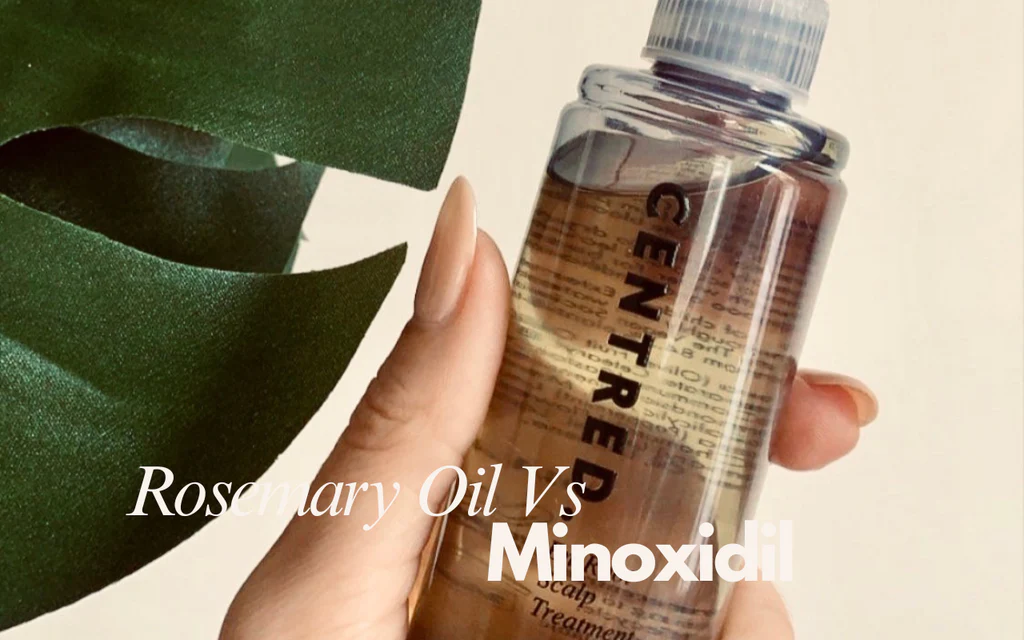Introduction
Hair loss is a common concern for many individuals, prompting a search for effective treatments. Among the various options available, Rosemary oil and Minoxidil have gained popularity for their purported benefits in promoting hair growth. In this article, we will delve into the characteristics of these two treatments and assess their effectiveness in addressing hair loss.
Understanding Rosemary Oil
Overview of Rosemary Oil
Rosemary oil is derived from the leaves of the Rosemary plant (Rosmarinus officinalis). It has a long history of use in traditional medicine and is renowned for its aromatic properties. In recent years, it has garnered attention for its potential to stimulate hair growth.
Mechanism of Action
Rosemary oil is believed to enhance hair growth by promoting blood circulation to the scalp and improving cellular metabolism. Additionally, it contains compounds such as ursolic acid and rosmarinic acid, which may have anti-inflammatory and antioxidant effects that support a healthy scalp environment.
Clinical Studies and Evidence
While some small-scale studies and anecdotal evidence suggest the positive effects of rosemary oil on hair growth, more extensive and rigorous clinical trials are needed to establish its efficacy as a standalone treatment for hair loss.
Examining Minoxidil
Overview of Minoxidil
Minoxidil, a medication initially developed for hypertension, has become a widely used topical treatment for androgenetic alopecia, commonly known as male-pattern baldness or female-pattern baldness. It is available over-the-counter in various formulations.
Mechanism of Action
Minoxidil’s exact mechanism in promoting hair growth is not fully understood, but it is believed to dilate blood vessels in the scalp, increase blood flow, and stimulate hair follicles. It is also thought to extend the anagen (growth) phase of hair follicles.
Clinical Studies and Evidence
Minoxidil has undergone extensive clinical testing and is one of the few FDA-approved treatments for androgenetic alopecia. Studies have shown its effectiveness in promoting hair regrowth, particularly in the crown area for men and the central scalp for women.
Comparative Analysis
Efficacy Comparison
While both rosemary oil and minoxidil aim to address hair loss, the level of scientific evidence supporting minoxidil’s efficacy is notably stronger. Minoxidil has undergone rigorous testing and is recommended by healthcare professionals for treating androgenetic alopecia.
Safety Considerations
Rosemary oil is generally considered safe for topical use, but allergic reactions may occur in some individuals. Minoxidil, on the other hand, may cause side effects such as scalp irritation and unwanted hair growth in unintended areas. It is crucial for users to follow product instructions and consult with a healthcare professional if concerns arise.
Convenience and Accessibility
Minoxidil is widely available over-the-counter in various formulations, offering users convenience in choosing the right product for their needs. Rosemary oil is also accessible, often found in health stores, but the range of standardized formulations may be limited.
Conclusion
In the ongoing debate of Rosemary oil vs Minoxidil for treating hair loss, the scientific evidence leans heavily in favor of minoxidil. While rosemary oil shows promise and may be a natural alternative for some individuals, its efficacy is not yet firmly established through rigorous clinical trials. Before embarking on any hair loss treatment journey, it is advisable to consult with a healthcare professional to determine the most suitable and effective option based on individual needs and preferences.

